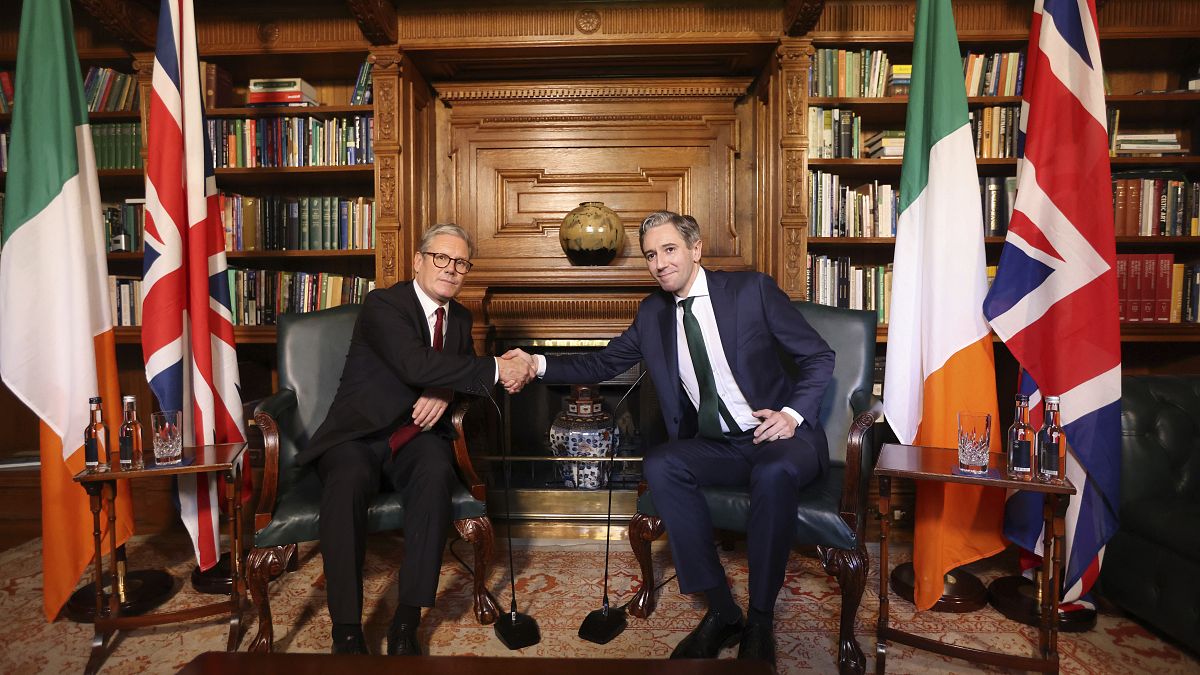British Prime Minister Keir Starmer recently visited Ireland to meet with his Irish counterpart Simon Harris in a move aimed at resetting relations between the two countries. This visit marks the first time a British leader has visited Ireland in five years, highlighting a desire to deepen economic and security ties. The meeting between the two leaders comes in the aftermath of the UK’s decision to leave the European Union, which has strained relations between the two countries, especially concerning Northern Ireland’s political structures.
During the visit, Starmer expressed the ambition to reset the relationship between the UK and Ireland, with plans for a summit by March and annual summits thereafter. Both leaders emphasized the importance of placing British-Irish relations on a new path, acknowledging their joint role in upholding the Good Friday Agreement, which brought an end to the Troubles in Northern Ireland. Starmer reiterated his commitment to solidifying relations with Ireland and the EU, although he clarified that the UK would not seek to rejoin the EU under his leadership.
In addition to improving relations with Ireland, Starmer is seeking to renegotiate elements of the post-Brexit trade deal with the EU to enhance growth and reduce trade friction. He has been engaging with various EU capitals to build goodwill and strengthen ties for a closer relationship with the EU on security, defense, and trade. The economic relationship between the UK and Ireland is significant, with trade worth approximately €120 billion and supporting thousands of jobs on both sides of the Irish Sea.
The visit to Ireland and the ongoing efforts to reset relations between the UK, Ireland, and the EU have broad implications for the political landscape in Northern Ireland and the larger European context. By committing to upholding the Good Friday Agreement and deepening economic and security ties, Starmer is signaling a shift towards a more collaborative approach to navigating the complexities of Brexit and its aftermath. The renewed focus on relations with Ireland and the EU reflects a broader strategy to strengthen alliances and address shared challenges, such as the conflict in Ukraine.
Overall, the reset in relations between the UK, Ireland, and the EU represents a strategic move by Starmer to position the UK for continued cooperation and growth in a post-Brexit environment. By prioritizing dialogue, collaboration, and economic partnerships, he aims to navigate the challenges posed by Brexit while building stronger ties with key allies. The visit to Ireland serves as a symbol of this commitment to resetting relationships and working towards a more stable and prosperous future for all involved.











